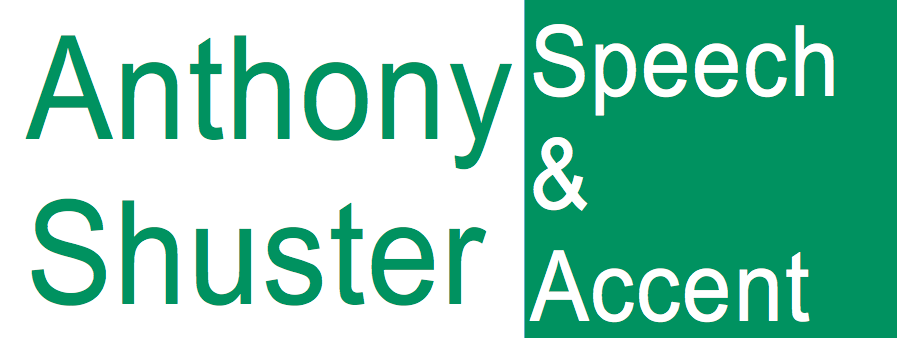‘What?? I’ve only had a couple…’ how your voice can let AI know you’re too drunk to drive
Using tongue twisters to gauge whether someone is too drunk to drive is just another way of telling us what we already know: people judge our competence based on how easy it is to understand us
We're well into the Christmas party season now and even highly-trained public speaking and accent coaches like me are going to be slurring their words a lot this month...
But what if you literally couldn't start your car until you'd been able to say 'the Leith police dismisseth us' with perfect clarity?
I posted on socials a while back about a new study using AI (of course) found that vocal changes - not just whether you say 'the Leish poleeth', but even subtle shifts in the pitch and frequency of the voice - can indicate whether you are over the limit, with nearly 98% accuracy.
(They got a group of people to say tongue twisters and then got them drunk and made them say more tongue twisters at hourly intervals. Sounds like a typical night out for me :))
A bit alarming, no? What if you sound a bit drunk, but you're not?
This could open up a whole new market for me! I could be coaching sober people on their diction and speech clarity so that they can persuade their Teslas that they're actually not too drunk to drive home, they just have a tendency to mumble. Or they're too tired from a stressful day at work to trill out a note-perfect 'she sells seashells by the seashore' 🙂
The article doesn't say what tongue twister they used in the study, but here's some fun Christmas word salads to see if you can pronounce perfectly after a few sherries:
“Twinkling tinsel trims the towering tree”
“Jolly jiggling jingle bells, jovially joining joyful elves”
“Carolers cheerfully chant by the chimney”
Actually, that's got me thinking: if an AI system like this really works, i can imagine public speaking apps that can listen to you speaking and tell you if you 'sound nervous'. Or sound like you're lying...
But then what would you do?
It's a fun thing to think about but the study feels to me like a laboured way of telling us what we already know.
Firstly that drunk people shouldn't read the news.
Secondly, that people judge how competent we are based on how we speak. And they pick up on very subtle things, sometimes even unconsciously, that might affect their confidence in how competent you are. A tremor in your voice, mumbling, hesitation - even the sort of loud strained forceful speaking that can be a sign that we're overcompensating.
Maybe what's not obvious to everyone, is the way this study reminds us that speaking is intensely physical. It affects us and we affect listeners on a physical level, with how we sound.
Whether you are addressing a large audience or engaging in a one-on-one conversation, the way you speak plays a significant role in how your message goes down with listeners.
The Stanford study primarily focuses on the effects of alcohol, but it underscores the broader significance of understanding speech patterns and appreciating how they are perceived.
Accent reduction coaching is not just about enhancing clarity in speech - paying close attention to pronunciation, intonation, and rhythm, we can convey thoughts more effectively.
Clear articulation not only ensures that your words are correctly understood but also adds a layer of professionalism to your communication. It's about making the listener feel valued - whether that's a prospective client, or a student, or a patient. As a professional navigating international business or an individual aiming to connect with diverse audiences, accent reduction coaching to help you connect more readily with people can be a valuable asset.
And whether or not your accent is an issue for you, this coaching goes beyond the nuances of pronunciation. It delves into the realm of confidence and presence. Many individuals grapple with stage fright or nervousness when speaking in public. Public speaking coaching gives us strategies to manage anxiety, make better use of our bodies through eye contact and gesture, and to engage the audience effectively. As highlighted in the Stanford study, even subtle changes in pitch and frequency can impact how your message is received. Public speaking coaching equips individuals with the tools to control these aspects of their speech, fostering confidence and ensuring a more impactful delivery.
The Stanford study has imitations, including a small sample size (and exclusively of white people) and a focus on specific speech features (it didn't look at speech volume - and we all know people that get either very quiet or VERY LOUD when they're tipsy) but it raises interesting possibilities. And it reminds us of the strong link between how we feel and how we sound.
Investing in accent reduction or public speaking coaching is not just about 'sounding posh' or 'sounding more English'; it's about unlocking the power of effective communication, sounding as confident as you feel in what you have to say. Whether you are aiming to make a lasting impression in your professional life or enhance your personal connections, the ability to speak with clarity and confidence is a valuable skill.
And you could manage to persuade the barman that you're still sober enough to order one for the road...
Have a safe, not-too-tipsy and happy Christmas - thanks to all who worked with me this year, and see you in 2024 :)
